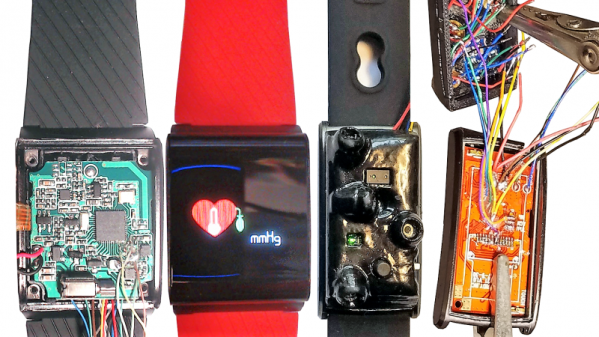We all know that the mind can affect the body in dramatic ways, but we tend to associate this with things like the placebo effect or psychosomatic illnesses. But subtle clues to the mind-body relationship can be gleaned from the way the body moves, and these hacked fitness monitors can be used to tease data from the background noise of everyday movements to help treat mental health issues.
Over the last few years, [Curt White] of the Child Mind Institute has been able to leverage an incredibly cheap but feature-packed platform, the X9 Pro Sports Bracelet, a fitness band that looks more or less like a watch. Stuffed with an ARM Cortex processor, OLED screen, accelerometer, pulse sensor, and a ton of other stuff, the $35 wearable is a hacker’s dream. And hack it he did. One version of the bracelet is called Tingle, which is used to detect and avert body-focused repetitive behaviors (BFRBs), compulsive disorders that can result in self-harm through pulling at hair or pinching. The Tingle is trained to recognize the motions associated with these behaviors and respond with haptic feedback through the vibration motor. Another hacked X9 was attached to a dental retainer and equipped with sensors to monitor respirations intraorally, in an attempt to detect overdoses. It’s fascinating stuff, and the things [Curt] has done with these cheap fitness bands is mighty impressive.
This project is yet another entry in the 2018 Hackaday Prize, which is currently in the Robot Modules phase. Got an idea for something to make robots easier to build? Start a project page on Hackaday.io and get entered. Maybe your module will even feature a hacked fitness tracker.
Continue reading “Hacked Fitness Trackers Aim To Improve Mental And Physical Health”











